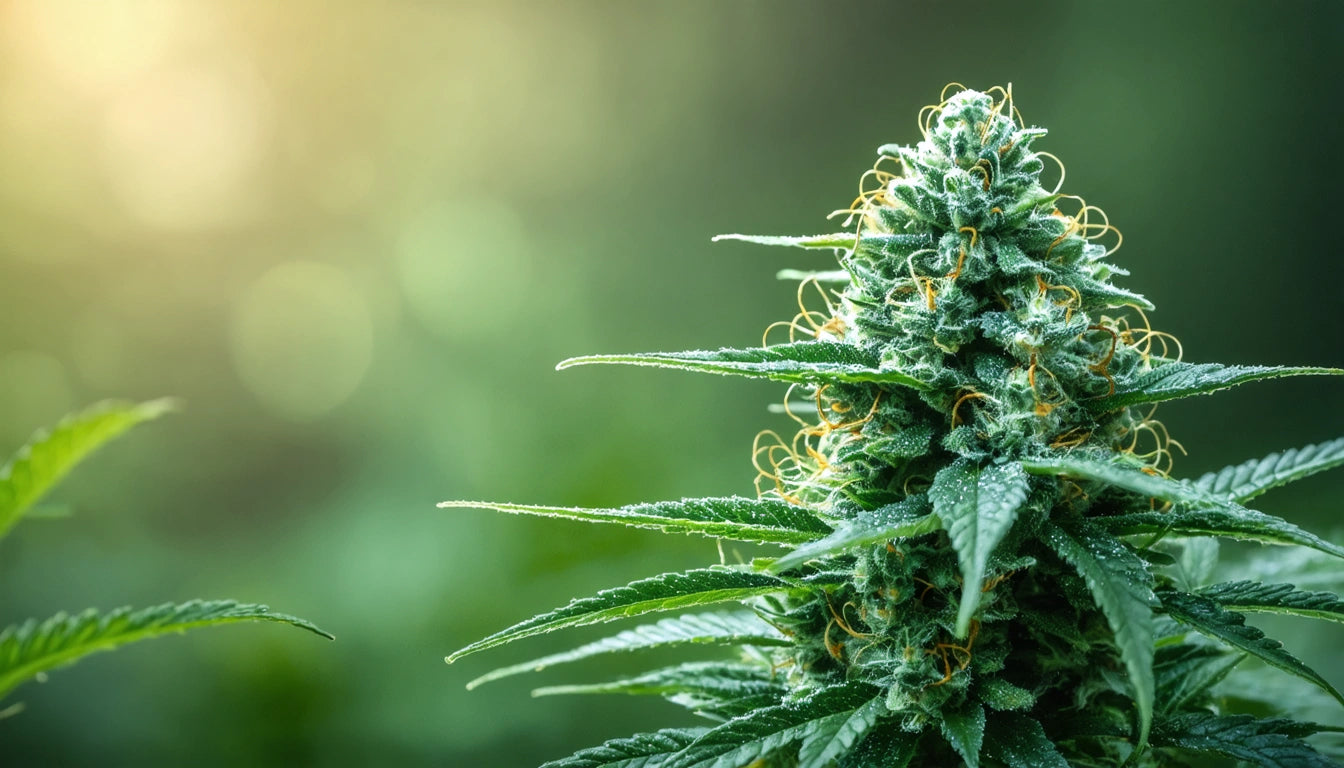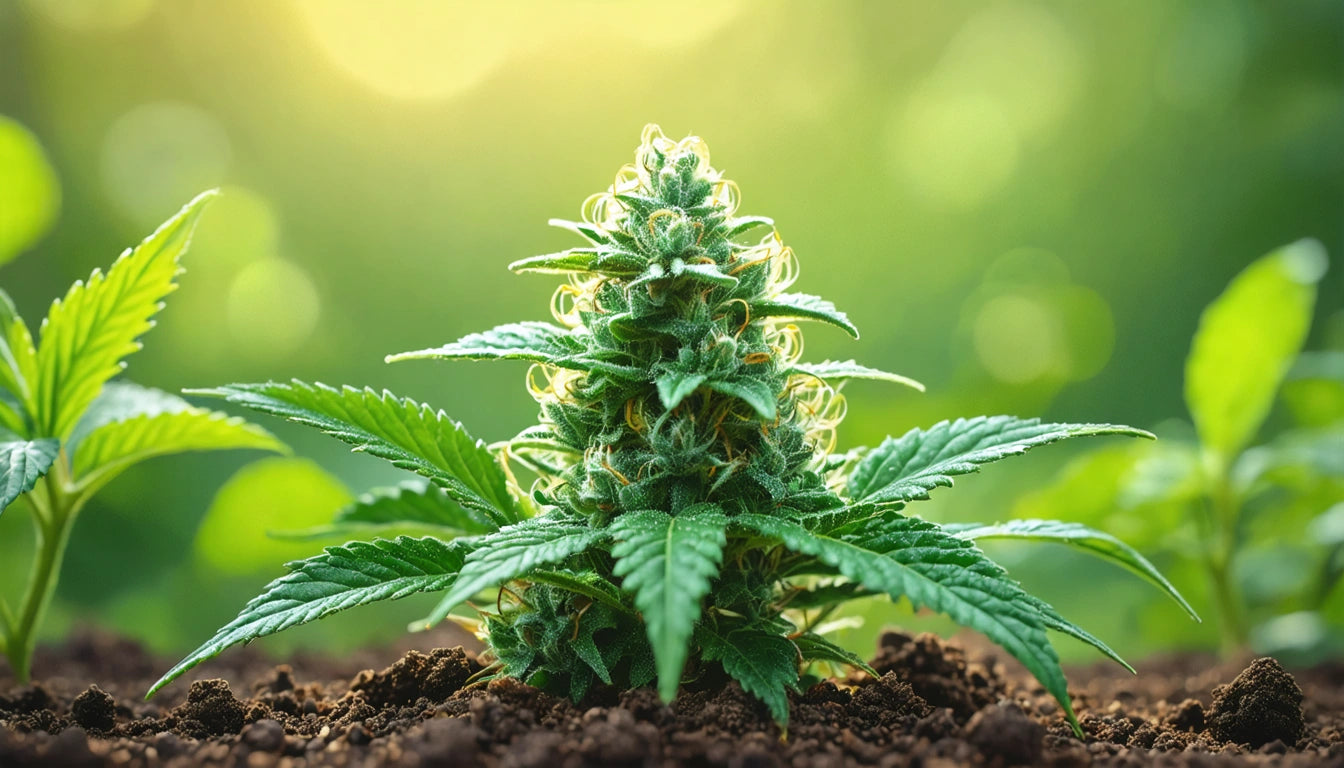Table of Contents
Can Cannabis Provide Relief for Multiple Sclerosis Symptoms?
Multiple sclerosis (MS) affects nearly 1 million Americans, causing a range of debilitating symptoms that significantly impact quality of life. As conventional treatments sometimes fall short in providing adequate relief, many patients have turned to alternative therapies, including cannabis. The question "does weed help MS" has become increasingly common among patients seeking additional options for symptom management.
Understanding Multiple Sclerosis and Its Symptoms
Multiple sclerosis is an autoimmune disease where the body's immune system attacks the protective covering of nerve fibers, disrupting communication between the brain and the rest of the body. This damage leads to a variety of symptoms, including:
- Muscle spasticity and stiffness
- Chronic pain
- Fatigue
- Bladder dysfunction
- Mobility issues
- Sleep disturbances
- Cognitive changes
The unpredictable nature of MS symptoms makes management challenging, leading many patients to explore whether cannabis might offer relief where traditional medications have limitations.
Cannabis Compounds and Their Effects on MS
Cannabis contains over 100 cannabinoids, with THC (tetrahydrocannabinol) and CBD (cannabidiol) being the most studied. These compounds interact with the body's endocannabinoid system, which plays a role in regulating various physiological processes including pain sensation, inflammation, and immune function.
For MS patients, this interaction may be particularly relevant as the endocannabinoid system is involved in regulating neuroinflammation and neuroimmune interactions, both of which are central to MS pathology. This connection provides a theoretical basis for why cannabis might help with multiple sclerosis symptoms.
Research Evidence: Does Weed Help MS?
Scientific research investigating whether weed helps multiple sclerosis has produced promising results in several key areas:
Spasticity Relief
Multiple clinical trials have demonstrated that cannabis-based medications can reduce muscle spasticity in MS patients. A systematic review published in JAMA Network Open found moderate evidence supporting cannabinoids for improving patient-reported spasticity symptoms.
Pain Management
Studies suggest that cannabis may help alleviate neuropathic pain, which affects approximately 55% of MS patients. This pain relief appears to work through different mechanisms than conventional pain medications, offering alternative options for medicinal weed users who don't respond to standard treatments.
Sleep Improvement
Research indicates that cannabis may improve sleep quality in MS patients, which is significant considering that sleep disturbances affect up to 80% of those with the condition. Better sleep can subsequently improve fatigue management, a common challenge in MS.
Symptom Management with Cannabis
When evaluating if pot helps MS, it's important to consider the specific symptoms that may respond to cannabis treatment:
Muscle Spasms and Spasticity
Cannabis appears most effective for reducing muscle spasms and spasticity, with patients reporting significant improvements in mobility and comfort. This benefit has been substantiated enough that several countries have approved cannabis-based medications specifically for MS-related spasticity.
Bladder Function
Some studies suggest cannabis may improve bladder control issues in MS patients. This improvement could significantly enhance quality of life, as urinary dysfunction affects approximately 80% of people with MS at some point.
Tremor and Coordination
While evidence is more limited, some patients report improvements in tremor and coordination when using cannabis. These benefits may be related to the anxiolytic (anti-anxiety) properties of certain cannabinoids.
Similar to how cannabis may help with Parkinson's symptoms, the effects on movement disorders in MS warrant further investigation.
Administration Methods and Considerations
For MS patients considering cannabis, the method of administration significantly impacts both efficacy and side effect profiles:
Inhalation vs. Oral Consumption
Inhalation provides faster relief but shorter duration, while oral methods offer longer-lasting effects but delayed onset. Many patients use properly sealed containers with child-resistant caps to safely store their medical cannabis, ensuring proper dosing and preventing degradation.
CBD vs. THC Ratios
Products with higher CBD:THC ratios may provide symptom relief with fewer psychoactive effects, making them suitable for daytime use. THC-dominant products might be more appropriate for nighttime use or when psychoactive effects are less concerning.
Dosing Considerations
Starting with low doses and gradually increasing ("start low, go slow") helps minimize adverse effects while identifying the optimal therapeutic window. Individual responses vary significantly, necessitating personalized approaches.
Unlike questions about whether marijuana enhances focus and concentration, the evidence for MS symptom relief is more substantial and consistent across studies.
Medical Guidance and Future Research Directions
While evidence suggests cannabis may help multiple sclerosis patients, several important considerations remain for both patients and healthcare providers:
Medical Supervision
Cannabis use for MS should ideally occur under medical supervision, particularly given potential drug interactions and the need for proper dosing. Medical cannabis programs in many states now specifically include MS as a qualifying condition.
Legal and Access Issues
Despite growing acceptance, legal barriers persist in many regions. Patients should understand their local laws regarding medical cannabis use and access. Even in legal states, insurance typically doesn't cover cannabis treatments, creating financial barriers.
Future Research Needs
More large-scale, controlled studies are needed to better understand optimal formulations, dosing regimens, and long-term effects. Research should also address which MS subtypes respond best to cannabis-based interventions.
As with marijuana's complex relationship with depression, the interaction between cannabis and MS involves multiple mechanisms that require further elucidation.
The growing body of evidence suggests that for many MS patients, cannabis provides meaningful symptom relief, particularly for spasticity, pain, and sleep disturbances. While not a cure, it represents an important complementary approach that may significantly improve quality of life when used appropriately and under medical guidance.
As research continues to evolve, our understanding of how cannabis compounds interact with MS pathology will likely lead to more targeted and effective cannabis-based treatments, potentially offering hope to the millions worldwide living with this challenging condition.











Leave a comment
All comments are moderated before being published.
This site is protected by hCaptcha and the hCaptcha Privacy Policy and Terms of Service apply.